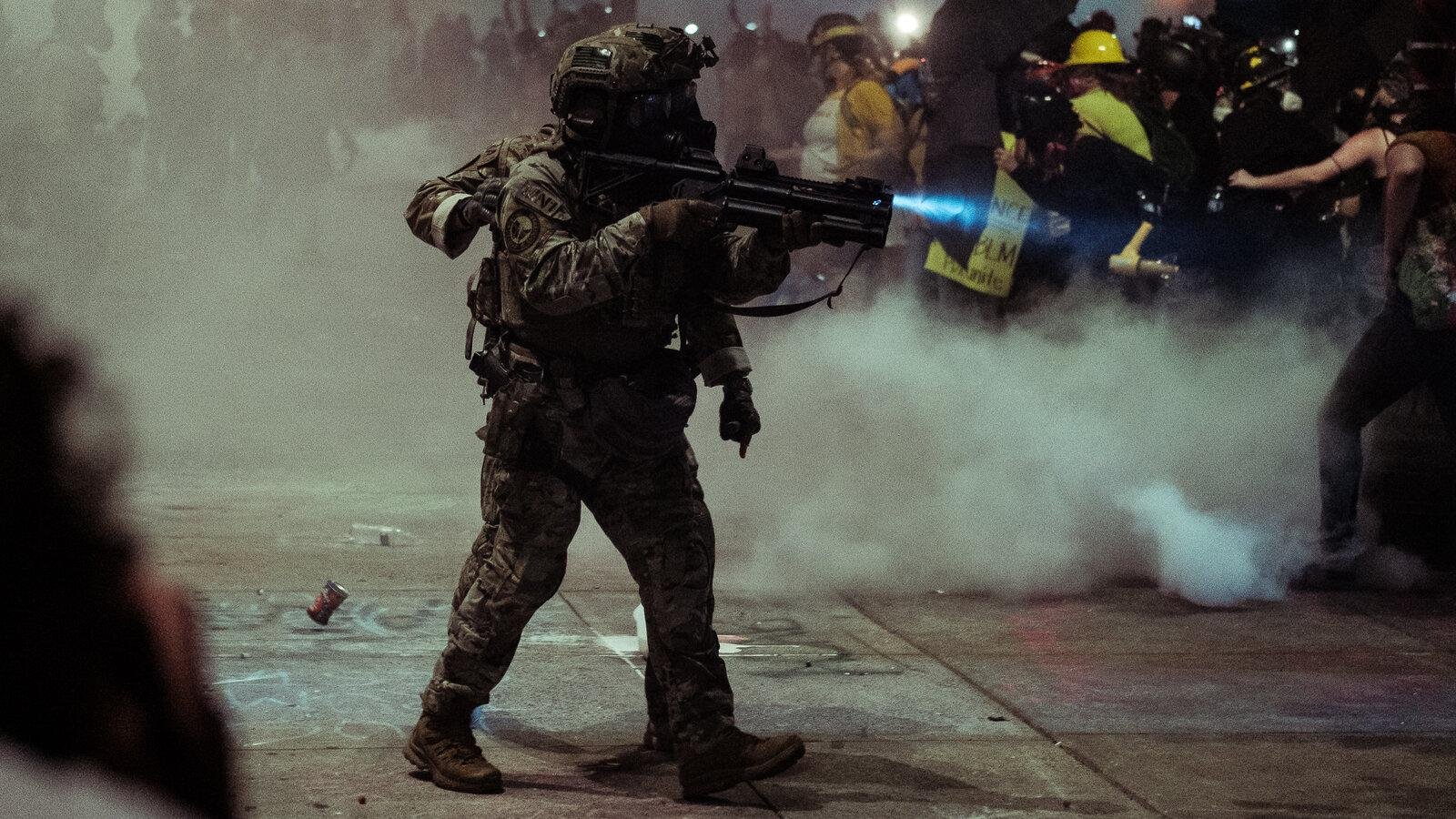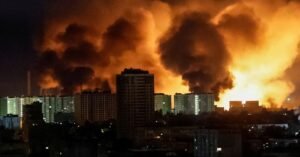In a move that intensifies the ongoing national debate over immigration enforcement and civil liberties, President Donald Trump has ordered the deployment of U.S. troops to Portland, Oregon, to protect federal Immigration and Customs Enforcement (ICE) facilities that he claims are under siege from “domestic terrorists” and the left-wing activist group Antifa. The announcement, made via Trump’s social media platform Truth Social, authorizes the use of “full force, if necessary,” to quell protests and any potential violence surrounding these immigration sites. However, city leaders and residents of Portland have vehemently opposed this federal intervention, arguing that it is unnecessary and an abuse of power.
Portland, designated as a sanctuary city, has long been a hotspot for protests against immigration policies and ICE’s actions. Over recent months, demonstrations at the ICE facility in South Portland have sometimes escalated into clashes involving tear gas and arrests, but city officials emphasize that the core of the community remains peaceful and safe. Mayor Keith Wilson has expressed frustration, noting that the city did not request this increased military presence and viewing the federal move as politically motivated and diverting from real public safety concerns. Oregon Governor Tina Kotek echoed this sentiment, stating there is no “national threat” in Portland and labeling the deployment as an overreach.
President Trump described Portland as “war-ravaged” and threatened to use overwhelming military force to protect federal facilities amid what he called attacks by Antifa and other “domestic terrorists.” His claims include allegations of paid agitators inciting chaos, though evidence supporting such assertions remains sparse. The White House has designated Antifa as a domestic terrorist organization, highlighting the group’s role in protests that have targeted law enforcement and ICE officers.
This escalation follows a broader Trump administration crackdown on illegal immigration, with federal troops previously deployed to other major cities such as Los Angeles and Washington, D.C., aimed at combating civil unrest and enforcing immigration law more aggressively. Critics argue these actions infringe on local governance and civil rights, with many Democratic lawmakers pledging to oppose troop deployments legislatively. The deployment to Portland specifically has raised constitutional questions about the use of the military in domestic policing.
Local officials and advocates also highlight that Portland is far from the “war zone” depicted by Trump. City surveillance footage and independent reports show a city grappling with protests and some violence, but not the widespread destruction or lawlessness suggested by the president’s rhetoric. Oregon’s leadership remains prepared to maintain order through its own resources without federal military intervention.
The announcement has sparked a tense standoff between local and federal authorities, prompting Portland residents to rally in defense of their city’s sanctuary policies and to protest the presence of troops. The situation underscores the continuing national polarization over immigration enforcement and the limits of federal authority in managing protests and civil unrest within U.S. cities.
As President Trump embarks on this controversial deployment, Portland stands at a crossroads between asserting local autonomy and facing increased federal intervention driven by the administration’s tough stance on immigration and public order.














